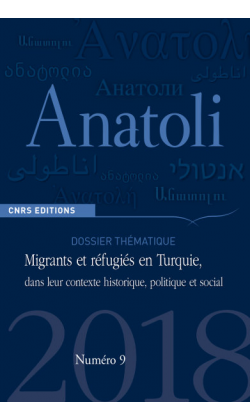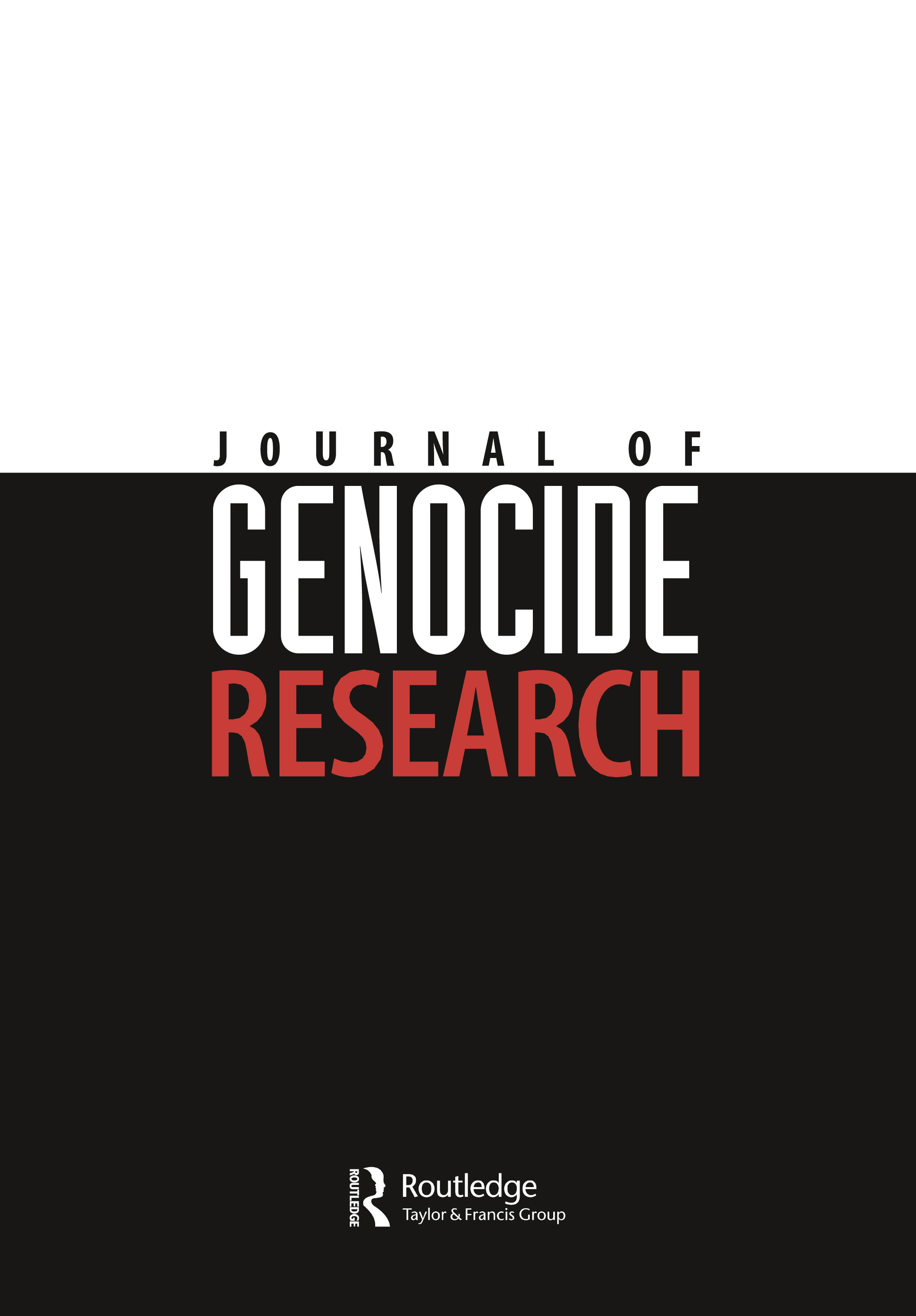Autokratisches Lernen: Parallelen des russischen und türkischen Neopopulismus

This contribution explores parallels in the development of autocratic rule in Russia and Turkey. Given both regimes’ activities in the Western Balkans, some of the main challenges for liberal democracy are demonstrated by pursuing three main theses: First, revisionist, neo-populist regimes are incompatible with the genuine interests of liberal democracy, posing a challenge to the demand for a value-oriented foreign policy, as advocated for instance by Germany. Second, there is a tipping point in the autocratic progress of populist regimes that can be missed – rendering functional partnerships between the two regimes impossible, and a return to the path of democracy unlikely. Third, the revisionist sense of mission by neo-populist actors in both Russia and Turkey serve a rule-securing function, by manipulating public consent both at home and abroad. Finally, the paper concludes with a plea to take revisionist neo-populism for serious, advocating for a strategic rethinking of foreign policy towards neo-populist regimes.
Empfohlene Zitierweise:
Schad, Thomas: Autokratisches Lernen: Parallelen des russischen und türkischen Neopopulismus, in: Südosteuropa Mitteilungen 5-6/2022, S. 103-1116, URL: https://www.sogde.org/de/publikationen/suedosteuropa-mitteilungen/ (zuletzt abgerufen am 20.12.2022).
Iran und Russland: Wie Demokratien Autokratien fördern

Schad, Thomas: Iran und Russland: Wie Demokratien Autokratien fördern, in: Berliner Zeitung vom 20.10.2022, URL: https://www.berliner-zeitung.de/open-source/iran-und-russland-wie-demokratien-autokratien-foerdern-li.277833 (zuletzt abgerufen am 23.10.2022).
Faktizität, Identität und Emotionalität: Kulturelle Strategien zum Umgang mit Genozid-Leugnung im Fall Srebrenica

English title: Facticity, Identity, and Emotionality: Cultural Strategies addressing Genocide Denial in
the Case of Srebrenica. The following abstract is in English, the article is written in German:
Twenty-six years after the Srebrenica genocide, committed following the fall of Srebrenica in July 1995, the topic remains a discursive minefield.
On the one hand, there are the facts and a self-confident commemorative culture of the
genocidal events of July 1995. On the other hand, there is widespread revisionism, negation and counter-memorialization. This essay is grounded in three sources: first, the findings of the Srebrenica Genocide Denial Report 2021 by the Memorial Center Srebrenica; secondly, the proposals for breaking the narrative of genocide denial by Jasmila Žbanić, director of the film Quo
Vadis, Aida?; and finally, the results of the anti-revisionist, cross-national projects Ko/Tko je prvi počeo? (Who started first?) and Histoire pour la liberté (History for freedom) will complete this contribution. The aim of the essay is not merely to identify reasons, backgrounds, and interests in the revisionist discourse. Rather, it suggests possible solutions to this polarized situation in the field of (pop-)culture, which could be relevant beyond the regional framework.
Empfohlene Zitierweise:
Schad, Thomas: Faktizität, Identität und Emotionalität: Kulturelle Stragien zum Umgang mit Genozid-Leugnung im Fall Srebrenica, in: Südosteuropa Mitteilungen 5/2021 ( = Zeitschrift der Südosteuropa-Gesellschaft), S. 33-48.
Über die Sevdah, den bosnischen Künstler Damir Imamović und die Würdigung „schrankenlosen Sentiments“

(English abstract, article in German)
This essay on the art genre Sevdah and its song form Sevdalinka, common across former Yugoslavia and centered in Bosnia-Herzegovina, evolved as a response to this year’s German Record Critics‘ Award (Preis der deutschen Schallplattenkritik) to the Sarajevan artist Damir Imamović. Inspired by Imamović’s 2013 lecture „On the ten most widespread delusions on Sevdah“, the author aims to situate the genre Sevdah amongst other musical forms from the former Yugoslavia, to depict Sevdah’s specifities and interwovenness across the Mediterranean basin, Central Europe and the Middle East, and to contribute to the discussion on cross-border, inter-ethnic cultural practice and hybridic thirdness. Due to its multifaceted character, Sevdah is interpreted here as a pluriphonic, (re-)creative artist tradition, whose youngest generation has achieved a veritable revival of the genre, starting from the 2000s.
Empfohlene Zitierweise:
Schad, Thomas: Über die Sevdah, den bosnischen Künstler Damir Imamović und die Würdigung „schrankenlosen Sentiments“, in: Südosteuropa Mitteilungen 5/2020 ( = Zeitschrift der Südosteuropa-Gesellschaft), S. 67-84.
Die öffentliche Diplomatie einer kommunikativen Figuration zwischen Sarajevo und Ankara: Das Verhandeln von Sicherheit, Kultur und Verwandtschaft

In diesem Beitrag gehe ich der Frage nach, wie das Thema der muslimischen Unsicherheit und (forcierten) Abwanderung von bosniakischen Muslimen in die Türkei mit der Verdichtung der bosniakisch-türkischen Kulturdiplomatie der letzten beiden Jahrzehnte korrespondiert. Meine Beobachtungen basieren auf meinen Feldstudien zwischen Bosnien und der Türkei von 2014 bis 2017 und bieten einen Einblick in meine fortgeschrittene Dissertationsforschung. Ich beschreibe und analysiere in ihr einen Diskurs, dessen auffälligste Merkmale in textuelle und praxeologische Aspekte gegliedert werden können, die jedoch eng miteinander verzahnt sind: erstens besteht das Handeln der Kulturdiplomatinnen aus der Produktion unc Perzeption von Text, der sich aus historischen, religiösen und verwandtschaftlichen Themen der kulturellen Verbundenheit speist, und dessen narrativer Plot eine Umkehrbewegung von Fortgang, Verlust und Unsicherheit hin zu Rückkehr, Erbschaftsantritt und Sicherheitsversprechen erzählt. Eng verbunden mit der textuellen Ebene ist, zweitens, die Ebene medialer, kultureller und baulicher Praxis (…).
Empfohlene Zitierweise:
Schad, Thomas: Die öffentliche Diplomatie einer kommunikativen Figuration zwischen Sarajevo und Ankara: Das Verhandeln von Sicherheit, Kultur und Verwandtschaft, in: Telbizova-Sack, Jordanka und Christian Voß (2019)(Hg.): Islam auf dem Balkan. Muslimische Traditionen im lokalen, nationalen und transnationalen Kontext. Reihe: Südosteuropa-Jahrbuch. Berlin (u.a.): Peter Lang, S. 149-175.
A Communicative Figuration Between Sarajevo and Istanbul in the Course of Gentrificating Turkey’s Post-Ottoman Hinterland

In this article, I will tie in with the topic of Turkish cultural diplomacy in the Balkans, but extend the research interest by the question how and to what extent the significant and undoubtable rise of discoursive running to and fro between Sarajevo and Ankara was and is informed by the topic of forced Muslim migration of European Muslims from the formerly Ottoman Balkans to Turkey and the aligned memory of loss. By doing so, I will offer an overview of my ongoing , advanced doctoral dissertation, and present selected samples from my field studies that I have spent in Turkey, Bosnia and the area in-between from 2014-2017. Ihope to contribute to a deeper understanding of how different actors on different levels are involved in the symbolical negotiations between the Balkans and Turkey. Thus, not only official cultural diplomats‘ views will be taken into account, but also post-migrant (muhacirs‘) positions and their Balkanic relatives – in what I shall call a communicative Bosniak-Turkish figuration.
Bibliographical reference/source:
Schad, Thomas (2018): A Communicative Figuration Between Sarajevo and Istanbul in the Course of Gentrificating Turkey’s Post-Ottoman Hinterland, in: Anatoli 9, Dossier thématique: Migrants et réfugiés en Turquie, dans leur contexte historique, politique et social (sous la direction d’Elif Aksaz et de Catherine Wihtol de Wenden), 127-139.
Thomas Schad: „From Muslims into Turks“: Consensual demographic engineering between Interwar Yugoslavia and Turkey

This article focuses on the Yugoslav–Turkish agreement on the resettlement of Muslims from the Serb-dominated lands of southern Yugoslavia to Turkey from 1938. The agreement was part of a broader series of state-directed population resettlement projects in the interwar period that had the demographic homogenization of nation-states in Southeastern Europe and Turkey as their ultimate goal. This study examines the close cooperation of Yugoslav and Turkish state authorities, and depicts commonalities of both states’ agents on the way to their bilateral agreement. The two-sidedness of this study will show the complexity of the applied homogenizing programme, consisting in equal measure of policies of exclusion and resettlement, and inclusive and assimilative nationalizing practices. Demographic engineering will be used as a conceptual framework for grasping both sides of the nationalizing projects. Besides resettlement, other methods of demographic engineering will also be taken into consideration by examining two key documents from each country that paved the way to the bilateral convention on the resettlement of Muslims from Southern Serbia to Turkey in 1938. The results of this juxtaposition will show how securitization was intermingled with concepts of national selfhood and otherness by classifying the population into agents and enemies of the state. The inclusion of ethnic criteria in this classification has had important implications down to the present day. Through its overarching regional lens, this study seeks to contribute to a growing number of studies on (forced) migration from Yugoslavia to Turkey by avoiding the shortcomings of a unilateral approach.
Bibliographical reference/source:
Schad, Thomas (2016): „From Muslims into Turks? Consensual demographic engineering between Interwar Yugoslavia and Turkey„, in: Journal of Genocide Research, 18(4), 427-446.
Thomas Schad: The Rediscovery of the Balkans? A Bosniak-Turkish Figuration in the Third Space Between Istanbul and Sarajevo

This Working Paper delienates the construction of diasporic spaces by Bosniak communities residing in İstanbul and İzmir. Based on an ongoing multilocal anthropological field research conducted by Thomas Schad, a PhD Candidate in Berlin Graduate School Muslim Cultures and Societies, Free University Berlin, this research extensivey discusses the rediscovery of the Balkans by the contemporary Turkish State and the AKP Rule. Deriving from the findings acquired in ethnographic field studies in three Bosniak neighborhoods and hometown associations in İstanbul and İzmir, this research explores the emerging “third space” between Turkey and Bosnia. It investigates the role of late and post-Ottoman Muslim migration (Muhacirlik) in Turkish cultural diplomats’ rediscovery of the lost Ottoman lands, and how contemporary neo-Ottomanism, conversely, is perceived by Bosniaks in Turkey and beyond.
Bibliographical reference and Link:
Schad, Thomas (2015): „The Rediscovery of the Balkans? A Bosniak-Turkish Figuration in the Third Space Between Istanbul and Sarajevo„, Working Paper No: 8 (2015), Istanbul Bilgi University, European Insitute Jean Monnet Centre of Excellence.
Neueste Kommentare